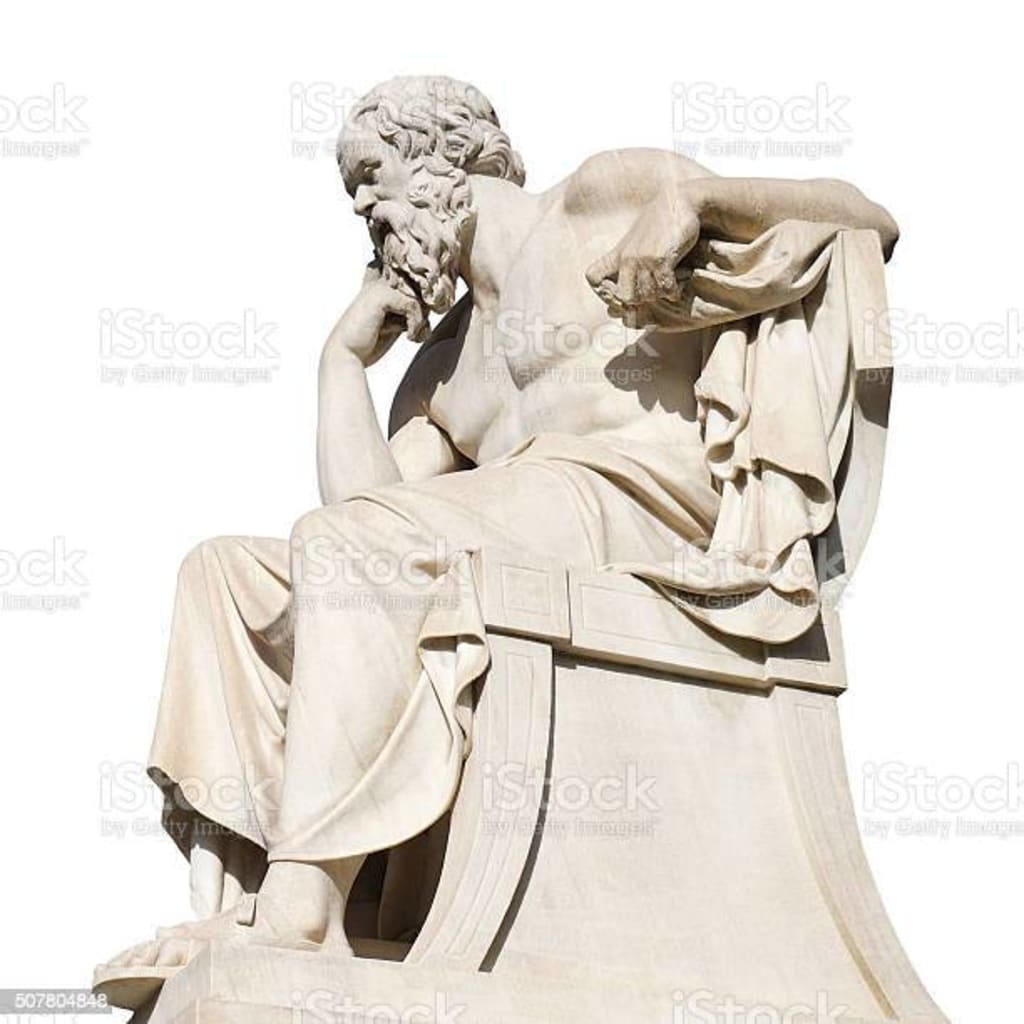Socretes history of life
Socrates was an ancient Greek philosopher

Socrates was an ancient Greek philosopher who is considered one of the founding figures of Western philosophy. He lived in Athens during the 5th century BCE and had a profound influence on subsequent philosophical thought.
Unfortunately, not much is known about Socrates' early life and personal history as there are no extant writings by him. The primary sources of information about Socrates come from the works of his students, particularly Plato and Xenophon, who documented his teachings and life events.
Socrates is known for his Socratic method, a form of inquiry that involves a series of questions and answers aimed at stimulating critical thinking and revealing the underlying assumptions in one's beliefs. He engaged in philosophical dialogues with fellow citizens, challenging their beliefs and encouraging them to question their own knowledge and values.
Socrates' philosophical approach and his relentless questioning of conventional wisdom made him unpopular with some influential figures in Athens. He was accused of corrupting the youth and introducing new deities, which were considered blasphemous. In 399 BCE, he was brought to trial and found guilty. The sentence was death by drinking a cup of poison hemlock, a punishment he willingly accepted, as he believed in upholding the principles of justice and obeying the laws of the city.
While Socrates did not leave behind any written works, his ideas and teachings were preserved and developed by his students, most notably Plato. Plato's dialogues, such as "The Republic" and "Phaedo," contain many of Socrates' philosophical arguments and explore various aspects of his teachings, including ethics, metaphysics, and the nature of knowledge.
Socrates' emphasis on self-examination, questioning assumptions, and pursuing wisdom through critical thinking had a lasting impact on the field of philosophy. His influence can be seen in subsequent philosophical schools, such as Stoicism and skepticism, and his ideas continue to be studied and debated to this day.
Certainly! Here are some additional details about Socrates' life and contributions:
1. Early Life: Socrates was born around 469 BCE in Athens, Greece. His father, Sophroniscus, was a sculptor, and his mother, Phaenarete, was a midwife. Socrates initially followed in his father's footsteps and worked as a stonemason and sculptor before devoting himself to philosophy.
2. Philosophical Method: Socrates is best known for his dialectical method of questioning. Instead of providing definitive answers, he sought to stimulate critical thinking and self-examination in his interlocutors. Through a process of probing questions, he aimed to expose contradictions and inconsistencies in people's beliefs and opinions.
3. The Oracle at Delphi: According to Plato's account, Socrates received a message from the Oracle at Delphi, which proclaimed him the wisest man in Athens. Intrigued by this statement, Socrates embarked on a quest to find someone wiser than himself, engaging in conversations with various individuals to test their knowledge.
4. Socratic Irony: Socrates often used a rhetorical technique known as Socratic irony. He would feign ignorance while engaging in discussions, pretending to be a learner rather than an expert. By doing so, he encouraged others to articulate and defend their ideas, exposing the limitations of their knowledge in the process.
5. Socratic Virtue: Socrates believed that virtue was the highest form of excellence and that knowledge of the good was essential for moral behavior. He focused on the development of individual character and the pursuit of wisdom as the means to achieve a virtuous life.
6. Influence on Plato: Plato was one of Socrates' most prominent students and a philosopher in his own right. Socrates' ideas and methods are often presented through Plato's dialogues, which depict Socrates as the main character. It is through Plato's writings that much of our knowledge about Socrates' teachings and philosophy has been preserved.
7. Trial and Death: Socrates' philosophical activities and his association with young men, such as Plato and Alcibiades, raised suspicion and hostility among some influential figures in Athens. He was eventually brought to trial in 399 BCE on charges of impiety and corrupting the youth. Found guilty, Socrates chose to drink a cup of poison hemlock, maintaining his commitment to the principles of justice and the Athenian legal system.
Socrates' legacy extends beyond his own time, as his philosophical method and ideas have had a profound influence on subsequent thinkers and philosophical traditions. His emphasis on critical thinking, self-examination, and the pursuit of truth continues to inspire and challenge individuals to this day.





Comments
There are no comments for this story
Be the first to respond and start the conversation.